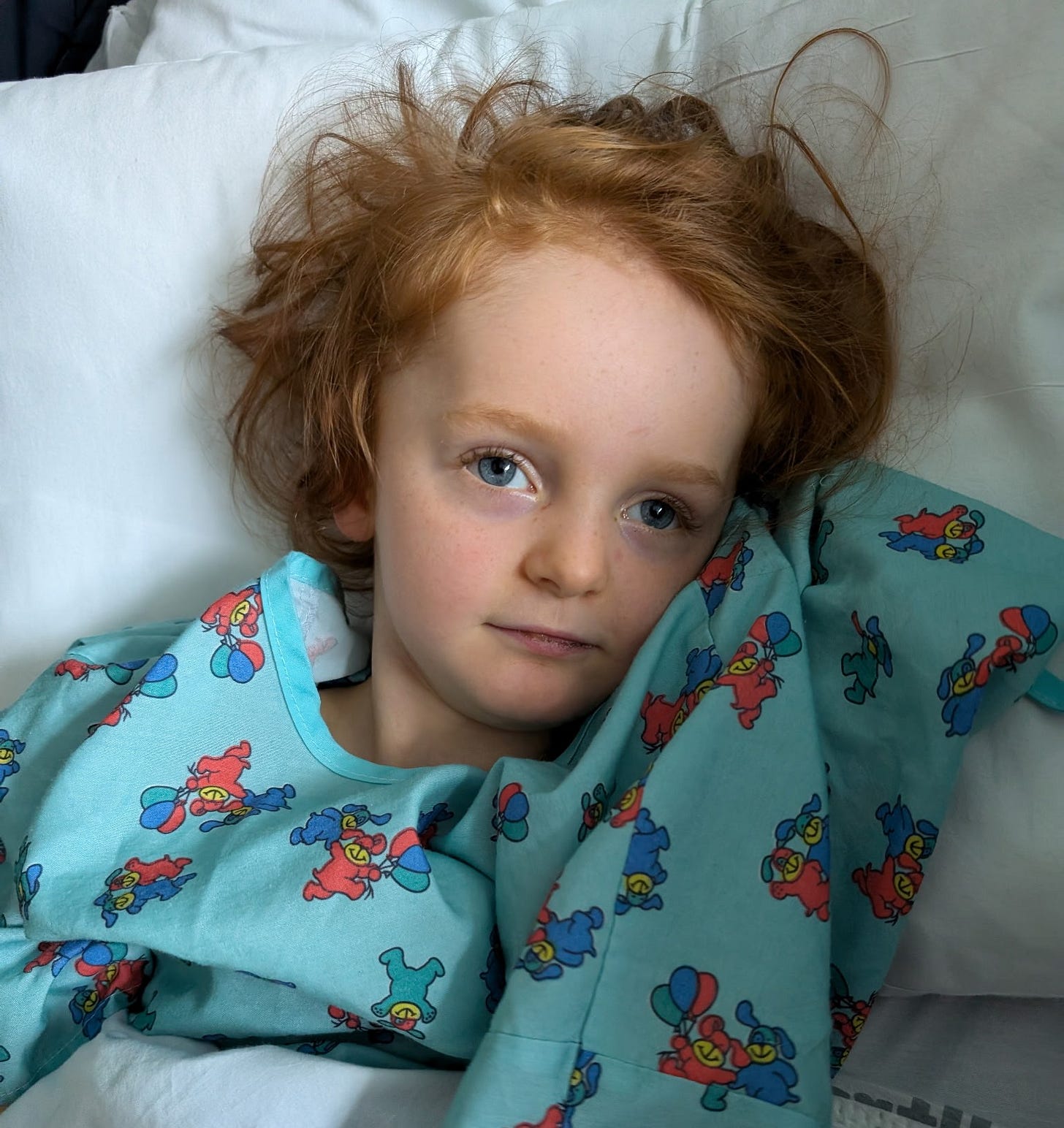Parents, Medical Providers Share Concerns Over Passage of Trump's 'Big Beautiful Bill'
With nearly $1 trillion in cuts to Medicaid and Medicare expected, parents, medical providers and elder care administrators in the region share why they're worried

Lowell Gordon is five years old and she was born with a genetic disorder called CDKL5 Deficiency Disorder.
There’s no treatment and Lowell’s condition is life-limiting. She requires around-the-clock line-of-site supervision and the cost of her care, from the medication she needs to stay alive to the specialized medical care to the home nurse they need to keep her safe and stay employed, is much more than her middle class parents Claudia Sanderson and Bob Gordon can afford. It’s also more than private insurance will cover.
It’s Medicaid that covers a majority of the costs, Sanderson said.
Born during the COVID-19 pandemic, Lowell suffered her first attack of seizures when she was about two weeks old. She already had a appointment scheduled at Seattle Children’s Hospital but Claudia and Bob decided to the emergency room because it clearly couldn’t wait.
They ended up staying at Seattle Children’s for the next 10 days.
“When we got out we get home and the mail shows up. And there’s a hospital bill for like $84,000 and change and it says, you know, remit payment within a week,” she said.
That number came down because she did get on insurance, but their deductibles meant they still had to pay thousands out of pocket. This was also before Lowell received her diagnoses and qualified for disability.
Without Medicaid, Sanderson said they worry about having to make a decision between bankruptcy and homelessness or withholding life-saving care for their child.
CDKL5 is a deficiency disorder that results in a rare developmental epileptic encephalopathy caused by mutations in the CDKL5 gene, according to the International Foundation for CDKL5 Research1. The hallmarks are early-onset, intractable epilepsy and neurodevelopmental delay impacting cognitive, motor, speech, and visual function.
It’s more common in females and affects one in every 40,000-60,000 live births in the US per year.
Lowell is fed through a tube and goes through phases of feeding intolerance, meaning her stomach can’t always keep food down, Gordon said. She needs constant care and without the daytime nurse Medicaid covers, one of her parents would have to quit their jobs.
“So she has a nurse during the day so we can work,” Gordon said. “She basically needs around-the-clock attention. She can throw up and not be able to clear it and choke to death.”
Medication is another thing that Medicaid covers, and Sanderson said people don’t understand that if she doesn’t have the right medications – if they are restricted or cost too much – their daughter could die.
The couple have been watching the progress of H.R. 1, better known as the “Big, Beautiful Bill” as it made its way through Congress to be signed by President Trump on July 4, with trepidation and anxiety. Sanderson said she has heard the Republican talking points but doesn’t see how simply eliminating “fraud” or making adults without dependents “get a job” will achieve the savings they are aiming for.
“When you look at the total budget of Medicaid and how much they want to be cut from it, I don't see how that's achieved without people that need Medicaid and deserve Medicaid and should be on Medicaid also losing Medicaid,” she said.
The Estimated Impacts Region-Wide
After the legislation that would become H.R. 1 started coming together in the House and Senate in February, a group of local folks came together to start studying how cutting a proposed $880 billion from programs that fund Medicaid would impact people in North Central Washington.
They call themselves the Health Care Preservation Team and about 18-20 people joined initially. Many are retired medical providers and they make no claim about being non-partisan in the matter. After years seeing American healthcare up close and personal, they said they’re concerned that the passage of H.R. 1 will result in unnecessary deaths across the country and our region.
Like most group projects, four of the members ended up doing a lion’s share of the research and writing and last week they released their findings. They spoke with representatives for Confluence Health and Columbia Valley Community Health, the two largest medical providers in Chelan and Douglas Counties, as well as other medical providers in Okanogan County and collected all the data available from a wide variety of publicly-available sources.
The core group is comprised of Scott Riseley, LICSW, Dr. Ashleigh Keyser, MD, Dr. Phil McGuiness, MD, and Diane Young, RN. I met up with them last week and asked them to walk me through some of their key findings.
“The proposed cuts would be catastrophic for rural areas, where Medicaid supports hospitals, clinics, behavioral health, long-term care, and more,” they wrote in the report. “Columbia Valley Community Health (CVCH), for example, could lose essential services like dental care, behavioral health, and school-based clinics. Confluence Health, which relies on Medicaid and Medicare for 68% of its budget, warns the system would ‘buckle.’”




